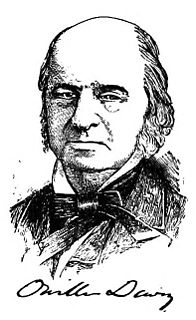A Quote by Charles Spurgeon
Affliction hardens those whom it does not soften.
Quote Topics
Related Quotes
There are those to whom a sense of religion has come in storm and tempest; there are those whom it has summoned amid scenes of revelry and idle vanity; there are those, too, who have heard its "still small voice" amid rural leisure and placid retirement. But perhaps the knowledge which causeth not to err is most frequently impressed upon the mind during the season of affliction.
God takes the most eminent and choicest of His servants for the choicest and most eminent afflictions. They who have received most grace from God are able to bear most afflictions from God. Affliction does not hit the saint by chance, but by direction. God does not draw His bow at a venture. Every one of His arrows goes upon a special errand and touches no breast but his against whom it is sent. It is not only the grace, but the glory of a believer when we can stand and take affliction quietly
After all that corrupt poets, and more corrupt philosophers, have told us of the blandishments of pleasure, and of its tendency to soften the temper and humanize the affections, it is certain, that nothing hardens the heart like excessive and unbounded luxury; and he who refuses the fewest gratifications to his own voluptuousness, will generally be found the least susceptible of tenderness for the wants of others.
Christians ought to suspect that affliction is the very essence of creation. To be a created thing is not necessarily to be afflicted, but it is necessarily to be exposed to affliction. ... Affliction is the surest sign that God wishes to be loved by us; it is the most precious evidence of His tenderness.




































